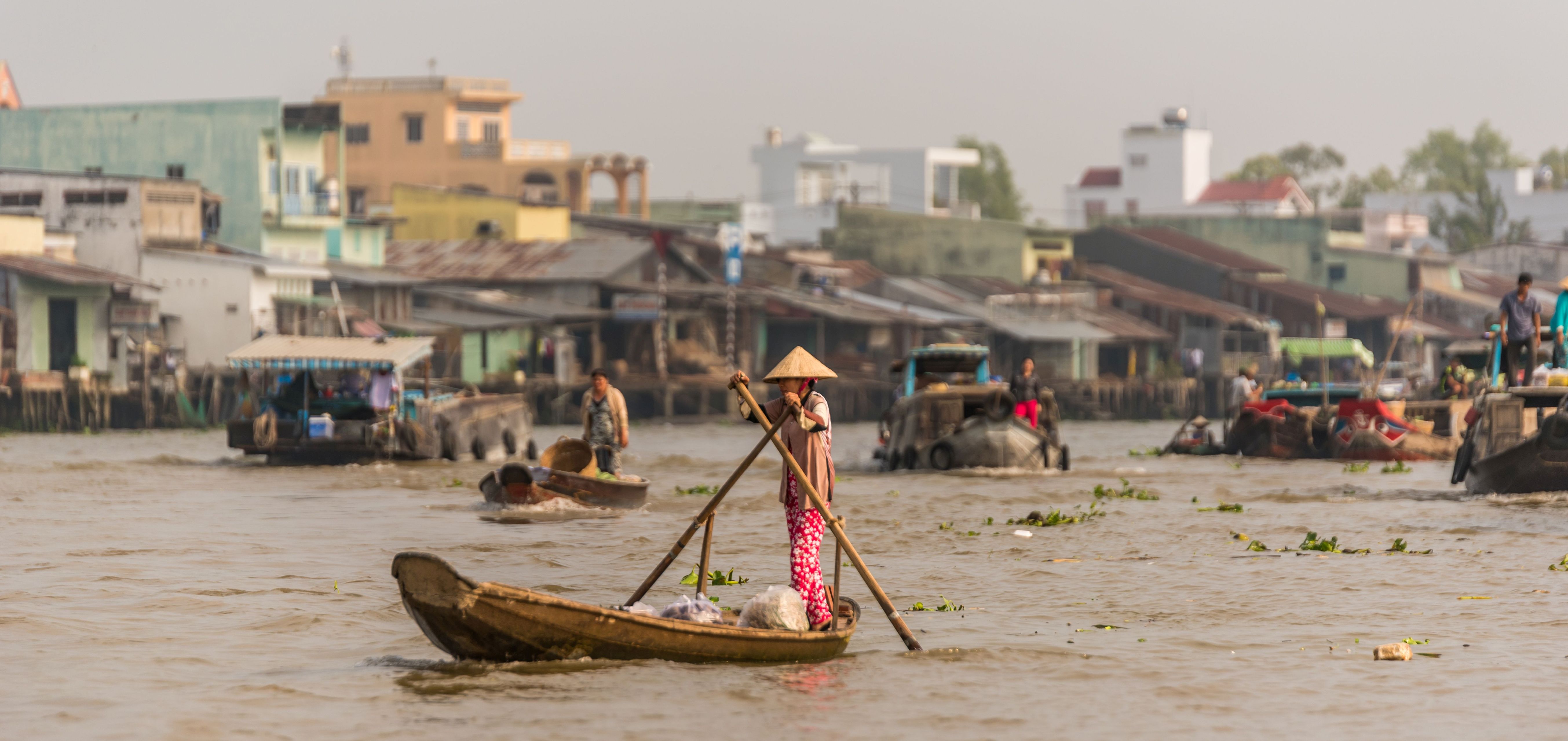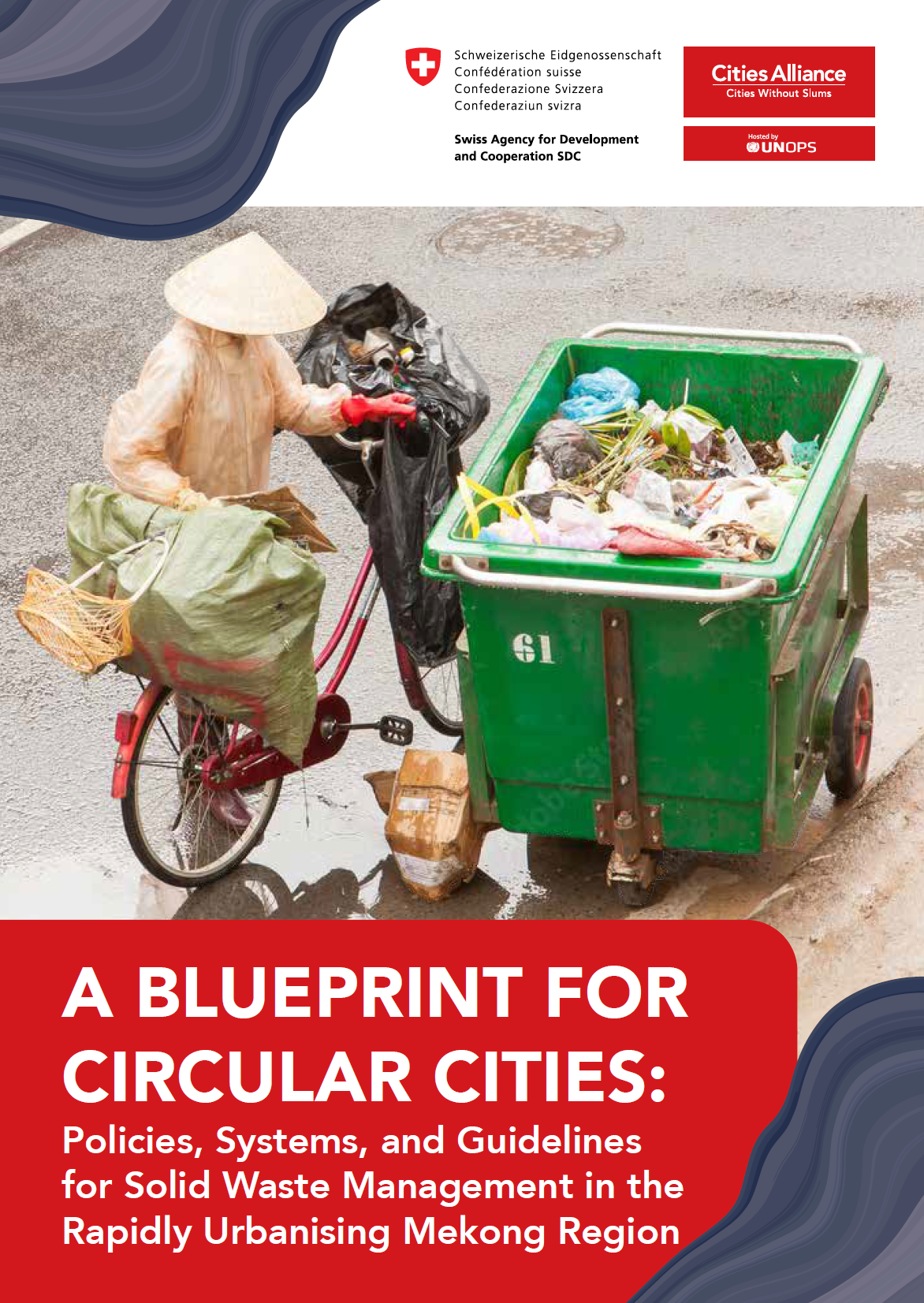- Who We Are
- How We Work
- Regional / Country Initiatives
- Legacy
- Core Themes
- Working Groups
- Portfolio & Results
- Newsroom
- Resources
Blueprint for Circular Cities: Solid Waste Management in the Mekong Region


For cities along the Mekong River, solid waste management (SWM) is a shared, significant challenge.
Waste pollution not only harms local environments, but also has far-reaching consequences. Pollution from these cities flows into the Mekong River – a vital resource for the region – and ultimately reaches the ocean, affecting several countries.
Sustainable SWM requires adopting circular economy principles, including reducing waste, reusing materials, and fostering sustainable consumption behaviours. Any SWM strategy must address the challenges of rapid urban population growth, alongside shifting consumption patterns and economic growth.
A Blueprint For Circular Cities: Policies, Systems, and Guidelines for Solid Waste Management in the Rapidly Urbanising Mekong Region provides a practical guide tailored to the realities of cities in the region.
Developed under the Urban Mekong Corridor Initiative (UMCI), a Cities Alliance programme focused on sustainable urban development along the Mekong River, the blueprint draws on the expertise of specialists familiar with the challenges and opportunities in this unique context.
The blueprint serves as a comprehensive resource for urban stakeholders, including local governments, civil society, and development partners. It offers guidance on SWM planning, decision-making, and collaboration, helping stakeholders understand the broader system requirements for sustainable waste management.
To ensure strategies are effective and context-specific, the blueprint combines global best practices with local solutions. By addressing local challenges and opportunities, it supports cities in developing waste management systems that are efficient, adaptable, and sustainable over the long term.
Key features
Introduction to circular waste management: The guide begins with an overview of waste management challenges in the Mekong River Corridor and the need to transition from linear waste practices (collect and dispose) to circular approaches that prioritize resource efficiency and material reuse.
System requirements: It outlines the legislative, governance, and stakeholder frameworks essential for effective SWM, providing a foundation for sustainable operations.
Operational Focus: Detailed sections cover the five key stages of the SWM supply chain: waste generation, collection, sorting, processing, and disposal. These chapters highlight the necessary infrastructure and services required for an integrated system.
A Blueprint For Circular Cities: Policies, Systems, and Guidelines for Solid Waste Management in the Rapidly Urbanising Mekong Region was produced as part of the Resilient Systems of Secondary Cities and Migration Dynamics Programme funded by the Swiss Agency for Development and Cooperation and implemented by Cities Alliance.
For an accessible overview, a summary of the publication is also available.
